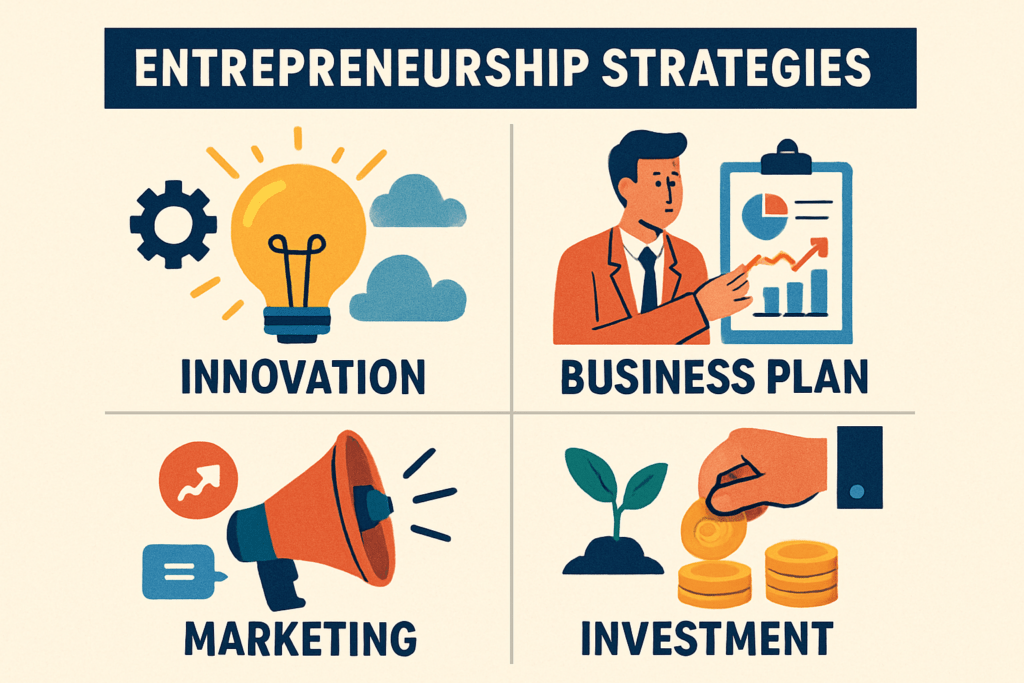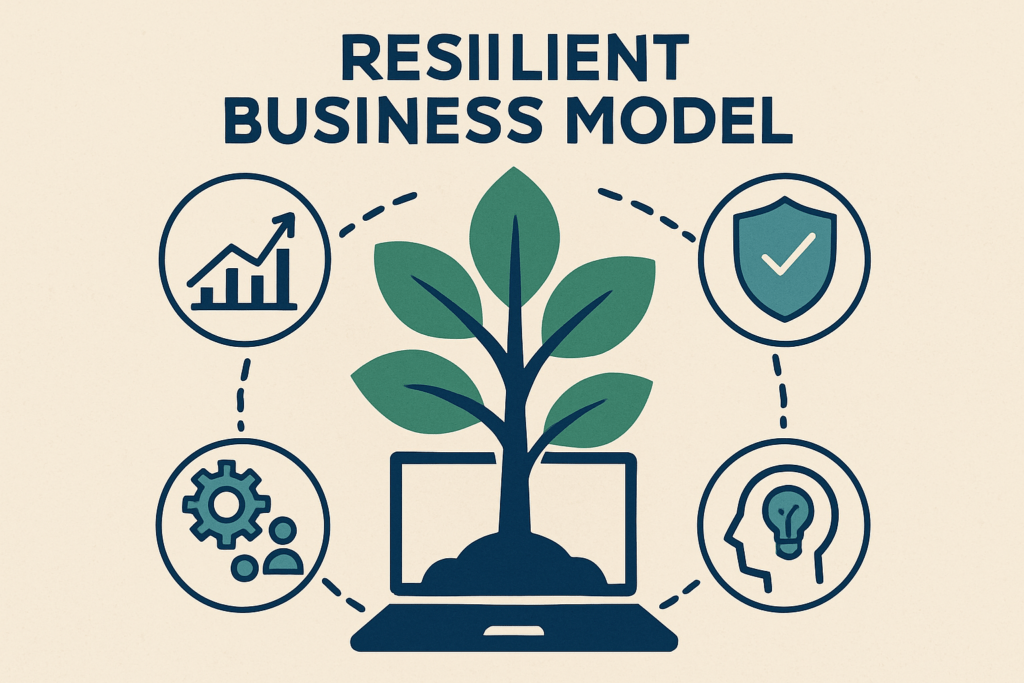Why Digital Tools Matter for Entrepreneurs in 2025
- Open with how the right tech makes or breaks a startup’s launch or scale.
- Emphasize main keyword: digital tools for entrepreneurs.
- Direct, no-fluff look at why digital adoption isn’t optional.
Why Digital Tools Matter for Entrepreneurs in 2025
Launching a startup in 2025 is a full-contact sport. The right tech doesn’t just make things easier—it decides whether your business actually gets off the ground or fizzles out in a mess of missed deadlines and burnt-out founders. Digital tools for entrepreneurs aren’t just a “nice to have” anymore; they’re the backbone of every serious operation.
Here’s the cold truth: no matter how sharp your idea is, if you’re clinging to old-school methods, you’re already behind. Competition’s global, expectations are sky-high, and nobody has time for repeated manual errors or endless email chains. Digital tools let you do more with less—automate the boring stuff, streamline your workflows, and keep your team in sync whether they’re across the hall or on another continent.
Skipping out on digital adoption is basically self-sabotage. It isn’t a ‘maybe later’ move—it’s a ‘right now or never’ kind of deal. Digital tools for entrepreneurs are what separate the scalable business from the overwhelmed hobbyist. Embrace the tech, or risk getting steamrolled by those who do.
The 2025 Toolkit: What Every Entrepreneur Needs
If you’re building a business in 2025, you need more than grit and great ideas—you need a stack of digital tools that handle the grunt work. Here’s a cliff-notes breakdown—spartan and straight—to cover your basics in tech for startups.
Key Categories and the Tools Dominating Each:
Communication
- Slack – The hub for day-to-day team convos
- Zoom – Group calls, investor pitches, quick one-on-ones
- Google Workspace – Email, calendars, docs; cloud-first, always available
Project Management
- Trello – Kanban-style, visual organization for projects
- Asana – Assignments, timelines, tracking progress in teams
- Notion – Catch-all for docs, wikis, calendars; fully customizable
Finance
- QuickBooks – Accounting, invoicing, taxes, all streamlined
- Stripe – Payments, subscriptions, global commerce
- Expensify – Snap receipts, track expenses, automate reports
Marketing
- Canva – Design pro-level graphics and content, zero learning curve
- Mailchimp – Email campaigns, automation, audience analytics
- Hootsuite – Manage multiple social accounts and schedule posts
2025 Digital Success Tools (At-a-Glance):
| Category | Top Tool(s) | What It Solves |
|---|---|---|
| Communication | Slack, Zoom, Workspace | Keeping teams and partners in sync |
| Project Mgmt | Trello, Asana, Notion | Tracking work, deadlines, and deliverables |
| Finance | QuickBooks, Stripe, Expensify | Payments, accounting, expense tracking |
| Marketing | Canva, Mailchimp, Hootsuite | Design, email outreach, social media |
Don’t get cute: the right digital tools for entrepreneurs are what take your startup from whiteboard scribbles to launch-ready reality. This is your blueprint. Adapt as needed, but skipping these digital success tools? That’s not an option—especially in 2025.
Online Strategy Execution: Turning Ideas into Action
“Great plan, now what?” For entrepreneurs in 2025, that “what” is all about online strategy execution—taking concepts from whiteboard to world stage using the right digital tools.
Let’s break it down. With project management software like Trello, you can map out every step of launching a product—deadlines, dependencies, and who owns what. Real-time communication? Slack keeps your team aligned and your idea moving forward. Analytics platforms track your progress, highlight what’s working (and what isn’t), and help you pivot faster than the competition. Need automation? Zapier connects your apps, so updates and alerts happen without you lifting a finger.
Here’s how it looks in real life: Sam, an entrepreneur, wants to launch a new eco-friendly travel app. She pitches the concept, uses Notion to collect feedback, and organizes development sprints in Trello. To build buzz, she schedules marketing posts with Buffer and tracks sign-ups through Google Analytics. Minor bugs? She logs them in Asana. Sales picks up and Sam automates onboarding emails using Mailchimp and Zapier—no manual intervention. Her entire strategy, from pitch to product, runs smarter and evolves in real time.
Bottom line: online strategy execution isn’t a buzzword—it’s the backbone of modern entrepreneurship. If you want the step-by-step playbook for turning ideas into real-world wins, see more at Essential Strategies for Budding Entrepreneurs.
Picking the Right Tools (Without Getting Overwhelmed)
Look, there are thousands of apps out there promising to solve every pain point. But a crowded toolkit slows you down. Here’s how to sort the signal from the noise:
- Focus on the essentials: What real problem does your startup need to solve—right now? Nail that first.
- Check the basics: Line up tools against four criteria:
- Price: Does it fit your stage? Free or low-cost options usually do the trick early on.
- Learning Curve: Can you (or your team) actually use it without a PhD?
- Integration: Does it play nicely with the tools you already use?
- Scalability: Will it work once you’re double or triple your current size?
- Resist shiny object syndrome: Don’t adopt five tools when one will do. Each extra app adds complexity—keep your stack lean.
- Test before you commit: Most platforms offer free trials. Take them for a real test drive, not just a stroll around the dashboard.
- Lean on the crowd: Read authentic user reviews, skim forums, and join communities to see what real founders love—or hate—about a tool.
Bottom line: The goal isn’t to build a warehouse of apps. It’s to find a handful of digital tools for entrepreneurs that work for you, not the other way around. Stay nimble; upgrade as you grow.
Digital Tools in Action: A Quick Case Study
Take Breezy Brands, a small ecommerce startup out of Austin. They bootstrapped hard, so every hour and dollar counted. Instead of bouncing back and forth between emails, spreadsheets, and sticky notes, the founders standardized their workflow with just a few apps.
First, they swapped endless team email threads for Slack. Communication headaches dropped overnight: real-time updates, quick polls, and shared files all in one spot meant no more lost info or slow decision-making. Next up, project chaos got tamed with Trello. By mapping product development on boards and cards, the team instantly saw who was doing what and which tasks were falling behind. Deadlines stopped slipping.
For finances, QuickBooks gave them a single dashboard—cash flow, inventory, recurring invoices. The switch saved them five hours a week on manual entry and let them spot accounting issues before they blew up.
Result? Breezy Brands launched their new product line two weeks ahead of schedule and shaved 20% off their operating time in the first quarter alone. Simple tech choices, big payoff. That’s the power of digital tools for entrepreneurs—less chaos, more results.
Where to Learn More and Stay Updated
Staying sharp with digital tools is an ongoing job—all the rules keep shifting. Right now, entrepreneurs should keep an eye on trends like smarter AI, tighter automation, and new ways to collaborate remotely. Expect change to be constant; what seems cutting-edge this quarter could be old news the next.
Don’t try to catch every wave at once. Instead, set up a system. Subscribe to a few trusted newsletters (think Indie Hackers, Product Hunt, and, for a curated deep dive, Smart Insights’ digital tools for entrepreneurs). Bookmark review sites and founder forums to check before you even touch that “Sign Up” button.
Joining online groups—Slack channels, subreddits, local entrepreneur meetups—helps you spot tools that actually work in the field, not just in advertisements. And when a digital tool releases a new feature, take ten minutes to skim the release notes or watch a demo; the small updates often map the future.
Bottom line: staying informed doesn’t have to be a second job, but a few habits and the right sources will keep your digital edge sharp.
Conclusion: Digital Savvy Is Non-Negotiable
Here’s the hard truth: without the right digital tools, you’re not just behind—you’re invisible. In 2025, mastering these platforms is the bare minimum for anyone serious about launching or growing a business. The landscape changes fast; tools evolve, competitors adapt, expectations rise.
But don’t let the tech run your life. Stay curious, experiment often, and make these tools serve your vision—not the other way around. Keep your setup lean, your skills sharp, and your mind open. The entrepreneurs who win are the ones who get digital, stay flexible, and never stop learning. Welcome to the new baseline.

 Charles Betzonics brings a sharp analytical approach to his writing at bizmomentumx. With a strong background in IT and emerging technologies, Charles focuses on cybersecurity, cloud computing, and digital transformation strategies, making complex topics accessible to a wide audience.
Charles Betzonics brings a sharp analytical approach to his writing at bizmomentumx. With a strong background in IT and emerging technologies, Charles focuses on cybersecurity, cloud computing, and digital transformation strategies, making complex topics accessible to a wide audience.
